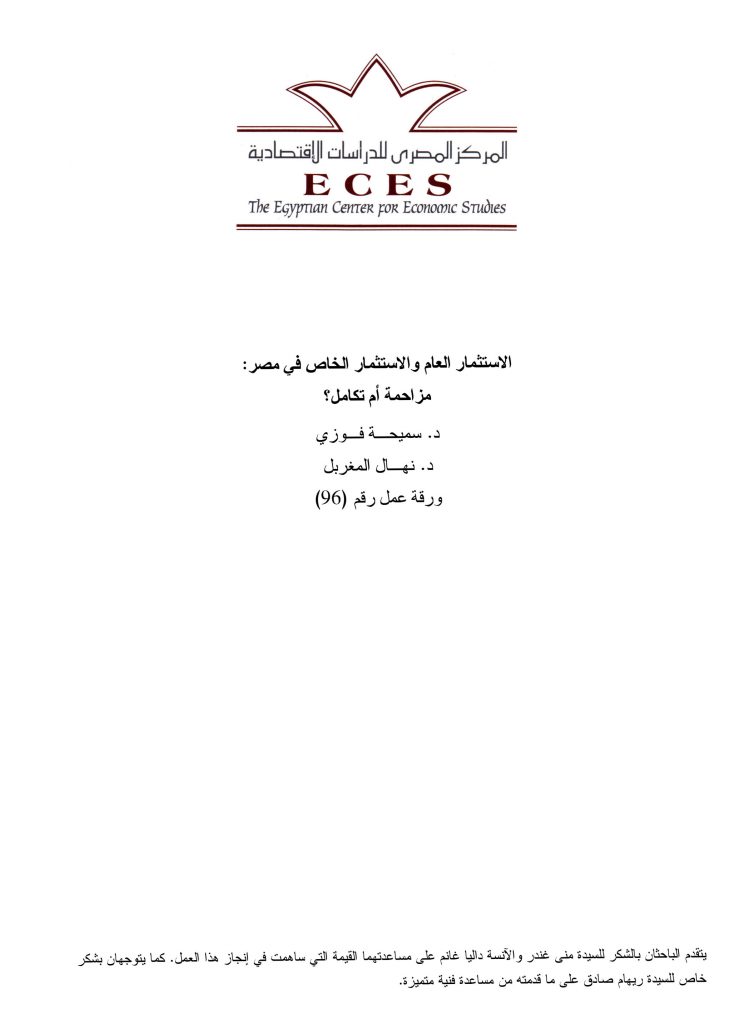Abstract:
There is growing consensus on the importance of investment as a determinant for economic growth. However, the relationship between public and private investment was and is still debatable in several developed and developing countries. The situation in Egypt is no exception. While some economists view public and private investments as competitive, others consider them complementary. This paper aims to analyze and assess the relationship between public and private investment in Egypt, in order to propose relevant policies to rationalize and increase the efficiency of public investment, and boost private investment. The study concludes that public investment in non-infrastructure activities crowds out private investment, while public investment in infrastructure such as roads, ports, electricity, education and health complements and encourages it.
In light of these results, the paper offers two sets of proposals. The first, which relates to public sector investment in non-infrastructure projects, suggests that no new investment should be channeled to these projects. It also suggests continuing the maintenance and rehabilitation of existing projects, especially in the banking sector and capital market, in addition to encouraging privatization. The second stresses the importance of enhancing the efficiency of public investment in infrastructure, particularly in the education and health sectors, while encouraging private sector participation (domestic and foreign) in infrastructure projects in addition to looking for new and varied sources of financing.

